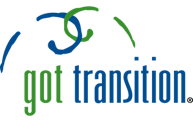

Turning 18 soon? Got Transition can walk you through all you need to know about making the transition to adult health care.

Did you know that there are less restrictive alternatives to guardianship? Click here to learn about Supported Decision Making and other ways to get help with important decisions.

Click here to read OSPI’s Transition Supports and Services Summary for Students, Families & Caregivers.
Your Team is Growing and Changing, Just Like You
It’s never too early to start thinking about life after high school and the supports you need to reach your goals. As you look toward life as an adult, your team may grow to include people from:
- Division of Vocational Rehabilitation
- County Developmental Disabilities Programs
- Developmental Disabilities Administration for a checklist and timeline of things to do before you graduate.
While you are still in school, DVR will take the lead on job related goals. DDA will continue to support you at home and in your community.
You may need help applying for services and supports when you turn 18, such as Supplemental Security Income and Apple Heath (Medicaid). Click here for a checklist and timeline of things to do before you graduate.
To read more about how school districts support transition planning for students with an Individualized Education Program, visit OSPI’s website, which provides detailed guidance for families on Transition Planning and Services. Continue reading here to learn more about how DDA can support you while you work with your IEP team and prepare for life after school.
Transition Planning with Your IEP Team
Make the most of your time in school by exploring your interests and thinking about the kind of life you want to live after high school.
For Washington state public school students, planning for life after high school is included in the High School and Beyond Plan which is one of our state’s graduation requirements. If you have an IEP, you will also have an IEP Transition Plan. Your IEP team will work with you on setting goals and planning for life after high school. This is called Transition Planning.
Starting no later than the year you turn 16, you will have a transition plan as part of your IEP. IEP transition plans include goals for further education and future employment. They can also include independent living goals. Your plan should include goals that reflect your strengths, preferences, interests and needs. You can review and revise the goals each year as you learn more about yourself and what you might want to do after school.
High School Transition Services
Your IEP transition plan will also include the services your school district and others will provide to support you in getting ready for life after high school. These are Transition Services.
IEP Transition Plans can include services and supports from a vocational rehabilitation agency, like DSHS’ Division of Vocational Rehabilitation, or the Department of Services for the Blind. You can invite a vocational rehabilitation counselor to join you for IEP meetings to learn about services that can help you explore different kinds of jobs and careers.
Your IEP team can also support you in making connections with DDA. If you are already connected with DDA, and as time allows, you can invite your DDA case manager to join you for IEP team meetings to support you and your team in identifying your strengths, preferences, interests and needs. You can also work with your DDA case manager to explore how DDA services can support you at home while your IEP Transition Services support you with school.
Finding Your Path to Graduation and Employment
If you need additional time to complete graduation requirements, or if your IEP team determines you need additional time and support to build your skills and preparation toward your transition goals, you have the option to continue in school and receive individualized transition services up through the year you turn 22. Transition services can be provided in a transition program, in the community, on the job, or all three, depending on your individual needs and interests.
If you want to leave school on a pathway to employment, connect early with DVR and DDA to explore job interests and pre-employment skills. Some areas of the state have county-funded School to Work or transition programs, and our Jobs Foundation pilot program has been growing roots in every county of the state. Jobs Foundation gives eligible students an early start in job readiness. Click here to learn more about Job Foundation and High School Transition.
